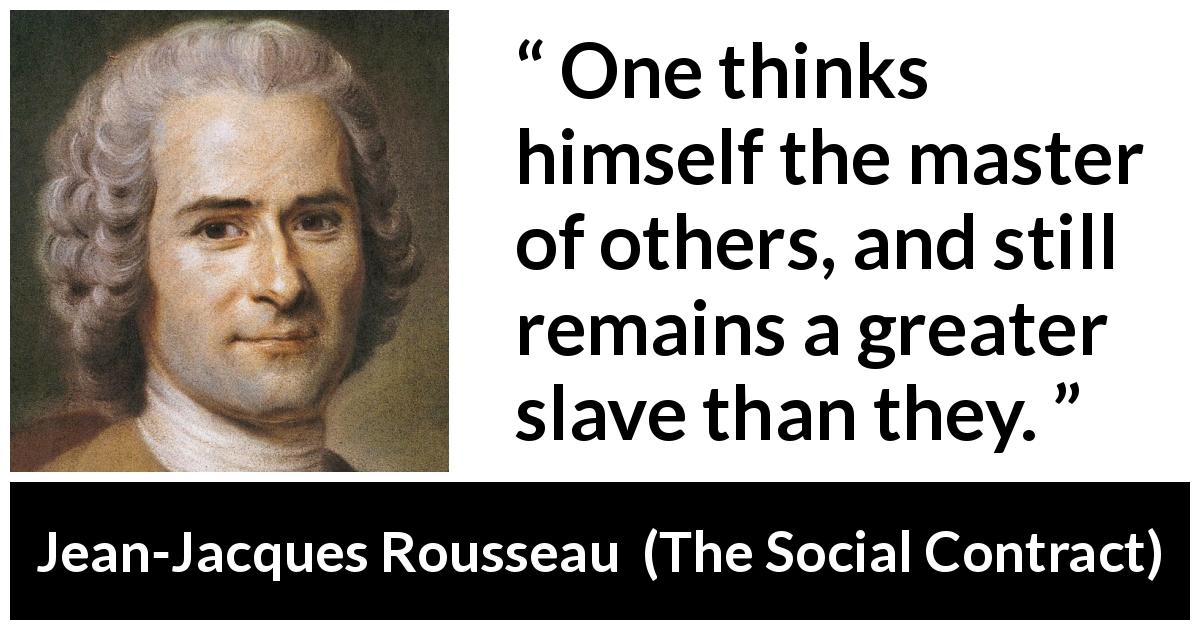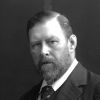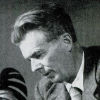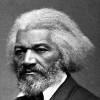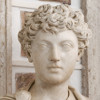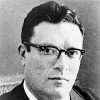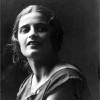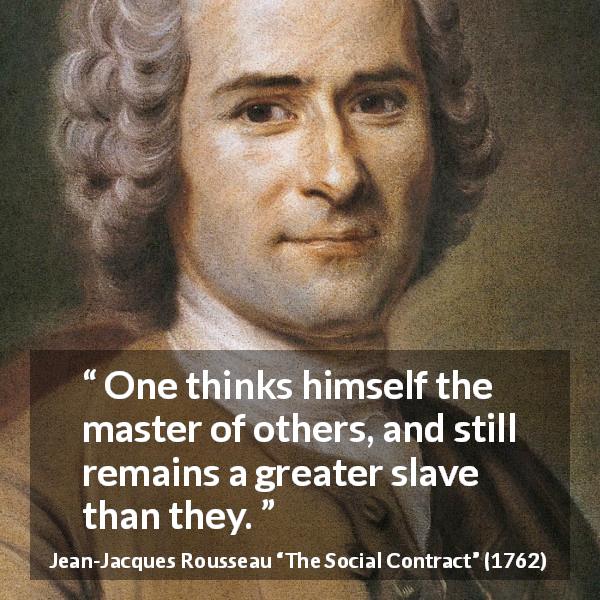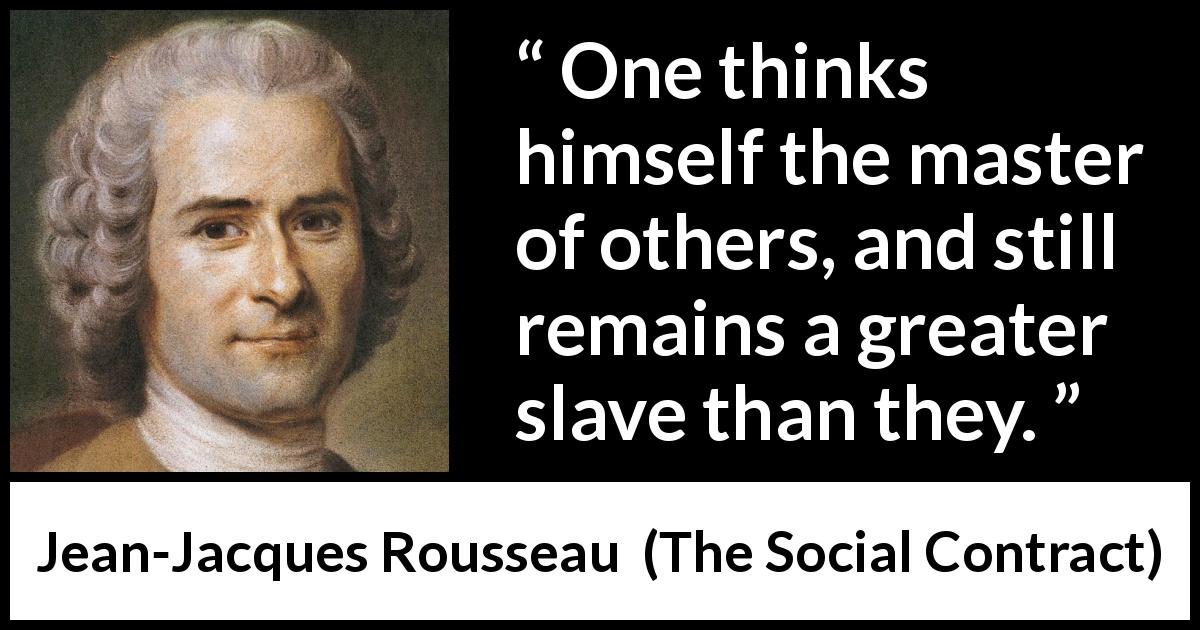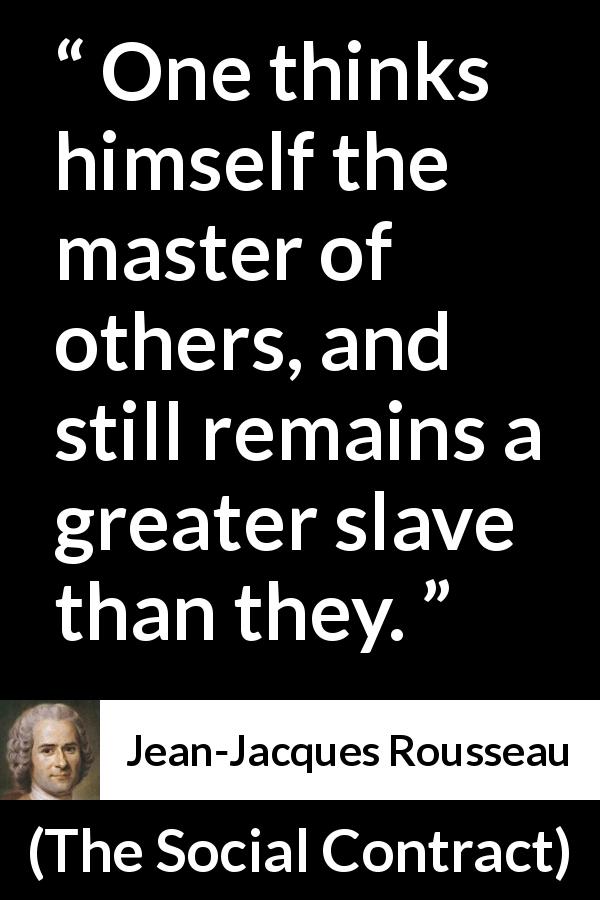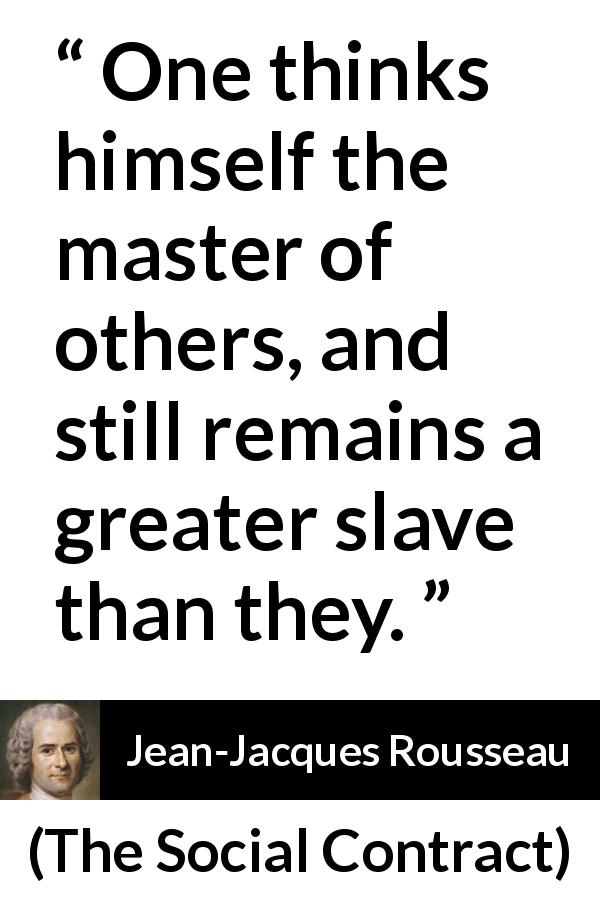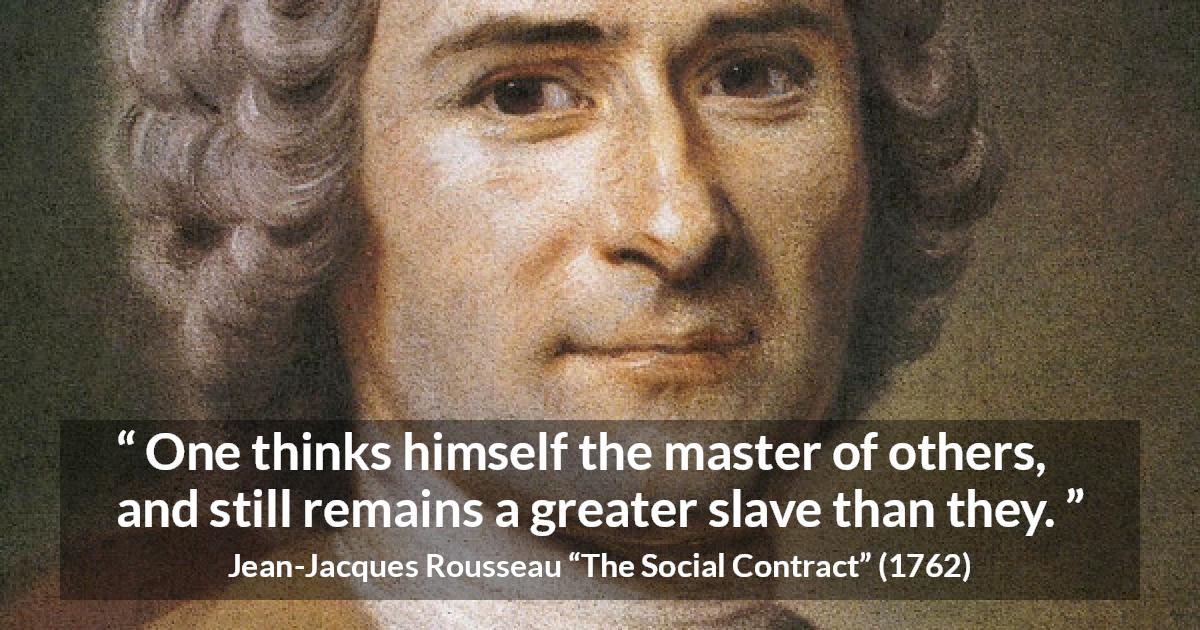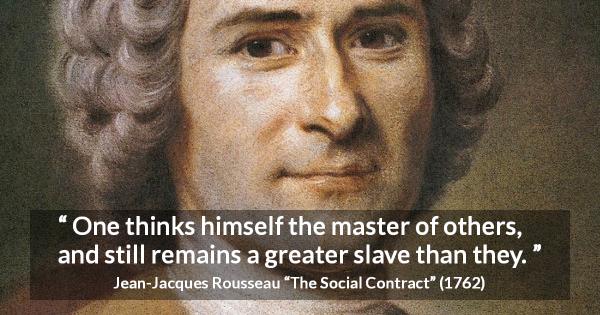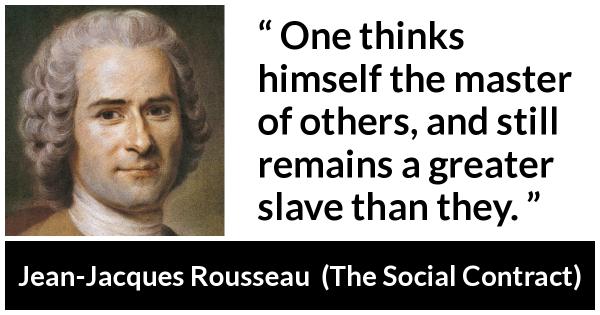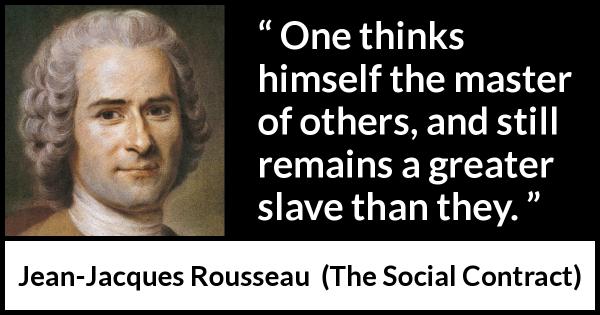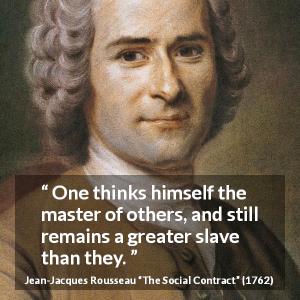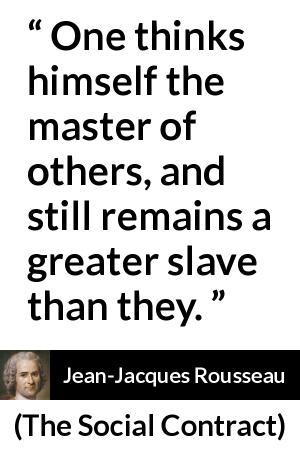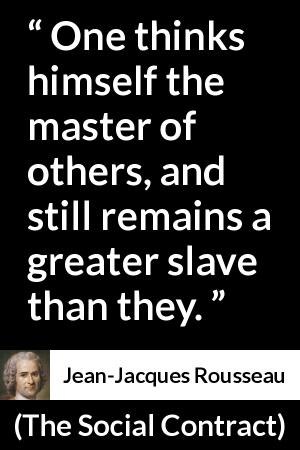“ One thinks himself the master of others, and still remains a greater slave than they. ”
Jean-Jacques Rousseau, The Social Contract (1762). copy citation
| Author | Jean-Jacques Rousseau |
|---|---|
| Source | The Social Contract |
| Topic | others master slave |
| Date | 1762 |
| Language | English |
| Reference | Of the Social Contract, or Principles of Political Law, Book I |
| Note | Translated by George Douglas Howard Cole |
| Weblink | https://en.wikisource.org/wiki/The_Social_Contract/Book_I |
Context
“As I was born a citizen of a free State, and a member of the Sovereign, I feel that, however feeble the influence my voice can have on public affairs, the right of voting on them makes it my duty to study them: and I am happy, when I reflect upon governments, to find my inquiries always furnish me with new reasons for loving that of my own country.
1. Subject of the First Book[edit]
MAN is born free; and everywhere he is in chains. One thinks himself the master of others, and still remains a greater slave than they. How did this change come about? I do not know. What can make it legitimate? That question I think I can answer.
If I took into account only force, and the effects derived from it, I should say: "As long as people are compelled to obey, and they obey, it does well; as soon as they can shake off the yoke, and they shake it off, it does still better; for, regaining their liberty by the same right as took it away, either it is justified in resuming it, or there was no justification for those who took it away."” source
1. Subject of the First Book[edit]
MAN is born free; and everywhere he is in chains. One thinks himself the master of others, and still remains a greater slave than they. How did this change come about? I do not know. What can make it legitimate? That question I think I can answer.
If I took into account only force, and the effects derived from it, I should say: "As long as people are compelled to obey, and they obey, it does well; as soon as they can shake off the yoke, and they shake it off, it does still better; for, regaining their liberty by the same right as took it away, either it is justified in resuming it, or there was no justification for those who took it away."” source
Original quote
